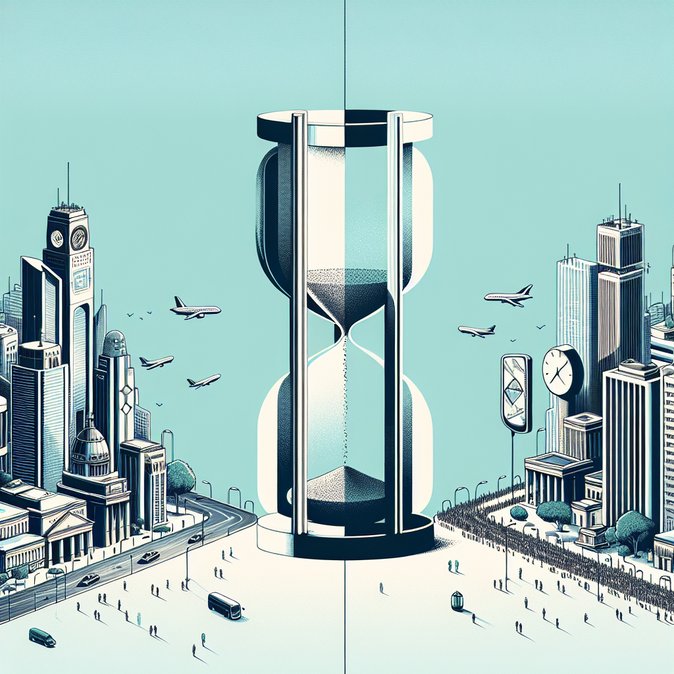
President Luiz Inácio Lula da Silva on 4 November 2025 signed Law 15.251, formally designating Belém, Pará, as Brazil’s capital between 11 and 21 November 2025, the exact period in which the city hosts the United Nations Climate Change Conference (COP 30). During these ten days, all presidential decrees, ministerial acts and federal-court orders must bear the Belém dateline, and executive, legislative and judicial bodies are authorised to operate from the Amazonian metropolis.
Logistical rationale – The symbolic move aims to highlight the strategic importance of the Amazon region in global climate negotiations, but it also has very practical mobility consequences. An estimated 60,000 delegates, journalists and corporate observers are expected to travel to Belém, a city whose airport handled barely 4 million passengers in 2024. The federal government is therefore accelerating terminal expansions, charter-flight slots, and temporary immigration booths to process the influx.
![Brazil temporarily transfers national capital from Brasília to Belém for COP30]()
Mobility impact – Companies sending executives to COP30 should anticipate heightened demand for flights and hotels, limited onward connections to interior destinations, and stringent security zones around federal-government facilities. The Ministry of Foreign Affairs confirmed that delegates holding the special "COP30 e-Visto" will have access to fast-track immigration lanes at Val-de-Cans International Airport. Domestic airlines plan additional routes from São Paulo, Rio de Janeiro and Brasília, but ticket prices have already risen 28 % compared with the same period in 2024.
Administrative implications – Ministries are relocating key staff, archives and secure communications to Belém. Multinationals that liaise regularly with regulators—particularly in energy, forestry and banking—should note that appointments requested during the conference will likely take place in Pará, not in the capital district. Courier firms are advising clients to send official correspondence to temporary Belém addresses to avoid processing delays.
Outlook – Similar capital transfers occurred during the Rio 1992 Earth Summit and the 2016 Olympic Games in Rio de Janeiro, and in both cases generated short-term travel congestion but lasting infrastructure upgrades. After COP30, federal operations revert to Brasília on 22 November, but Pará authorities hope enhanced air links and visa-processing capacity will remain, supporting longer-term mobility to the Amazon.
Logistical rationale – The symbolic move aims to highlight the strategic importance of the Amazon region in global climate negotiations, but it also has very practical mobility consequences. An estimated 60,000 delegates, journalists and corporate observers are expected to travel to Belém, a city whose airport handled barely 4 million passengers in 2024. The federal government is therefore accelerating terminal expansions, charter-flight slots, and temporary immigration booths to process the influx.

Mobility impact – Companies sending executives to COP30 should anticipate heightened demand for flights and hotels, limited onward connections to interior destinations, and stringent security zones around federal-government facilities. The Ministry of Foreign Affairs confirmed that delegates holding the special "COP30 e-Visto" will have access to fast-track immigration lanes at Val-de-Cans International Airport. Domestic airlines plan additional routes from São Paulo, Rio de Janeiro and Brasília, but ticket prices have already risen 28 % compared with the same period in 2024.
Administrative implications – Ministries are relocating key staff, archives and secure communications to Belém. Multinationals that liaise regularly with regulators—particularly in energy, forestry and banking—should note that appointments requested during the conference will likely take place in Pará, not in the capital district. Courier firms are advising clients to send official correspondence to temporary Belém addresses to avoid processing delays.
Outlook – Similar capital transfers occurred during the Rio 1992 Earth Summit and the 2016 Olympic Games in Rio de Janeiro, and in both cases generated short-term travel congestion but lasting infrastructure upgrades. After COP30, federal operations revert to Brasília on 22 November, but Pará authorities hope enhanced air links and visa-processing capacity will remain, supporting longer-term mobility to the Amazon.










